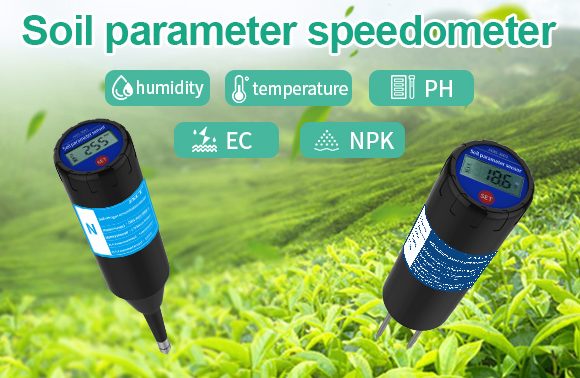Learn about Soil nutrient sensor
Soil Nutrient sensor provide accurate and real-time soil nutrient data, enabling farmers to make informed decisions about fertilization, irrigation, and crop management. Thus, it revolutionized farming methods.This article explores the benefits and applications of soil nutrient sensors in modern agriculture.

The benefits and applications of soil nutrient sensors
Enhanced Precision Farming:
Soil nutrient sensors improve precision farming technology and, in turn, transform traditional farming practices. Previously, farmers relied on manual soil sampling and laboratory analysis, which were time-consuming and provided delayed results. With the advent of soil nutrient sensors, precision farming has become more efficient and cost-effective. These sensors measure vital soil parameters such as nitrogen, phosphorus, potassium, pH, and moisture content directly in the field, eliminating the need for labor-intensive sampling and analysis.
Optimum Fertilizer Application:
Proper fertilization is critical for maximizing crop yield while minimizing environmental impact. Soil nutrient sensors enable farmers to apply fertilizers precisely, avoiding over- or under-application. By continuously monitoring the nutrient levels, farmers can customize fertilizer application based on the specific needs of their crops. This targeted approach not only optimizes yield but also reduces excessive fertilizer usage, minimizing water pollution and nutrient runoff.
Water Management:
Water scarcity is a growing concern worldwide, making efficient water management crucial in agriculture. Soil nutrient sensors play a vital role in irrigation management by providing real-time data on soil moisture content. This information helps farmers determine the optimal irrigation schedule, preventing both water wastage and water stress in plants. By ensuring adequate soil moisture levels, farmers can enhance crop health and productivity, reducing water consumption in the process.

Early Detection of Nutrient Deficiencies:
Early detection of nutrient deficiencies is vital in preventing crop yield loss. Soil nutrient sensors enable farmers to identify deficiencies or imbalances promptly, allowing for timely corrective actions. By monitoring nutrient levels throughout the growing season, farmers can address deficiencies through targeted fertilization or foliar applications. This proactive approach prevents nutrient-related diseases and promotes healthy plant growth.
Environmentally Friendly Practices:
Soil nutrient sensors contribute to sustainable agricultural practices by reducing the environmental impact of farming activities. By providing accurate data on soil nutrient status, these sensors help minimize fertilizer waste and runoff, mitigating water pollution. Additionally, by optimizing fertilizer application, farmers can reduce greenhouse gas emissions associated with fertilizer production and use, lowering their carbon footprint.
Conclusion:
The utilization of soil nutrient sensors in modern agriculture has revolutionized traditional farming methods, allowing for precise and sustainable crop management. These sensors enhance precision farming, optimize fertilizer application, facilitate water management, enable early nutrient deficiency detection, and promote environmentally friendly practices. As technology continues to advance, soil nutrient sensors hold immense potential for further improving agricultural productivity while minimizing environmental impact. By embracing these innovative tools, farmers can achieve sustainable yields, contributing to global food security and ecological preservation.
